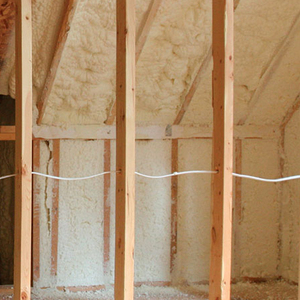New Contractor Looking for advice…where’s the profit hidden??
Hey all, I just shut down my crew for the winter up here in northern Canada (no one works in the winter up these parts unless a really huge project comes to town which is once in a blue moon) and as I look back over this last season I have to wonder where all my profit went or if it was even there at all! lol
This summer I did a lot of work for family and friends, my crew and I have built 2 new garages, did some decks, a bathroom reno and expansion and a couple of roofing jobs.
I was hired really based on my reputation as a hard worker and producing quality work. The guys that work for me were specifically asked to join me because of their same attitude towards producing quality work. All of our clients over this past summer have been extremely satisfied with our work. I didn’t bid on the jobs i did as they were handed to me. I didnt do a contract price or anything, I just billed the clients for materials and labour.
I made sure to only work for people that I know have money or are known to pay their bills on time and everything went smoothly. This year was my “tester” as a first time contractor and I have learned a LOT.
Next year I plan on taking many more jobs as my reputation is starting off right and I aim to keep it that way, I am wondering where I should be charging my profits as I want my company to grow. I would like to buy a company truck, a trailer for all my tools, some new tools and more scaffolding. I want the company to make money and have some money sitting in the bank.
How do or how did the big outfits get to be that way? I have a good reputation and my guys and myself pride ourselves on our work, I dont want to be the most expensive guy in town but I want this company to grow in a going concern that can provide a good income for my employees. Seeing as I have chance to do this right from the start, I am looking for advice and some heads up for pitfalls that might common to someone starting out.
I appreciate and welcome any advice or suggestions that anyone might have! 🙂



















Replies
pink
Have you figured out your "cost of doing business" ? This will include what it costs to supply those workers you have. Are they true employees or just friends you pick up as needed to help?
You have to account for that after wages b/4 you even think of seeing a profit.
This should hold the funds for that new equipment. Just because you have a truck and tools doesn't mean you don't have to return that investment to the company.
Too many of us thought-"boy, now I make much more and I'm my own boss"................
More per hour doesn't mean "more". That too often includes our cost of doing business-which conversely lowers our hourly rate.
Is there a business class at a community college up there in the north? Doesn't hurt to learn.
Thanks for the suggestions I appreciate 'em!
My guys are true employees and were hand picked for a number of reasons but specifically for their desire to produce quality work. We all believe together, that nothing is worth sacrificiing the quality of anything we do. We want to be proud to have our names attached to every sheet of drywall we hang, every meter of cement we pour and every nail we drive.
They get their wages paid and I have to pay the employers contributions and all of that stuff.
I have every piece of paper that i've created during all of the projects we have done and I have all of the hours documented. I had/have plans to go back to each project and compile all the data I can find like: total manhours, total labour cost, material cost, fuel, and account for lost and damaged tools. Is this the kind of information that will give me my "cost of doing business"?
So the jist I'm getting here, is calculate the cost of doing business and when I get work make sure to add in my profit there somewhere.
I really do love my job, i love the stress, the headaches, the people factor, i love my crew and i am and have been putting my everything into this. I think the most important thing to me going into this is quality work first and foremost, and a good long term employment opportunity for me and my guys. I am terrfied fo being a "flash in the pan" contractor.
I see some of the other bigger outfits around and on television and thats my goal. I want my crew, my company to be on par with the big boys. I know it will take time but I want to fight my way to the "top"!! :)
Just a tired old DIYer here sittin' around the cracker barrel, but my observation has been that the guys who really make money (at least for awhile) in construction (and many other business categories) are the ones who love to wheel and deal (and maybe bend the rules a bit). On the other hand, if you're in the biz because you love to build things you can maybe hope to make a decent living but you'll never get rich, and you'd better have something of a head for business or you'll go bust pretty quick.
I'd like to say virtue is rewarded, but I've seen too many counter-examples.
I suspect you will eventually have to bid projects rather than just time and materials. If you are just going to do time and materials, you could do something as simple as taking your employees salaries plus say 30% for overhead and then take what you expect to earn annually (say $60,000) and come up with your rate per productive hour you expect to have. You may also add on to that an overhead factor.
So if your guys expect to get $30,000 each year from your work and you are only going to work 9 months that roughly 1550 hours. (Normal work year is 2080 hours). So $30/1550 is roughly $20/hour so you would bill them out $26 per hour and you would have to be around $50/hour with overhead to be around $60,000.
I doubt though that will be able to operate on time and materials all the time. Customers are going to want firm quotes because T&M is too open ended for most customers. T&M is going to be seen by a lot of customers as an invitation for your to drag the job out and run up the bill.
So again, bidding is going to take a good knowledge of your total costs. The easy costs are the ones you have in your check register each month. The hard ones are the overhead costs for tools, trucks, annual fees, quarterly and annual taxes.
Take this down time as a way to learn about job costing. Cost accounting, is one of the reason we call accounting an Art not a Science. Accounting would seem to be pretty cut and dried, run by a specific set of rules bt it isn't. Figuring out all of your costs and allocating them in the best fashion to your jobs is soemthing that 5 different accountants could do 10 different ways.
cuss
I don't have employees, never have.
But I do believe that there's more than 6 bucks an hour bump on an employee apart from any benefits offered. That number is too low, then of course the markup in order to have them actually make the owner money.
no?
A typical benefit burden rate is 30% to 35% but that is just breakeven. Accounting is an art not a science so you and I can figure it ten ways to Sunday and both be right in the end. The critical thing is to understand your cost...all of them and assign them in a logical way to each job so you can job cost.
The old standby accounting joke is a man is interviewing new accountants and during the process he interviews four guys from Notre Dame, Wharton School of Business, Yale Oxford and asks each one "How much is 2+2". They all responded with some variation of indignation that "Two plus Two is four". When he is just finishing up his interview with a young man from a local state university, he asks again, "How much is two plus two?" The candidate looked at him with just the hint of a smile and said, "What do you want it to be?"
Just remember that your total job cost is not just on a pile of receipts. For instance, your truck. You may have just used one that you already had but that truck has value that is being consumed on each job. If you had truck that was worth $20,000 and you plan to use it for 5 years and you expect it to be worth $5000 when you replace it, you have to allocate the $15,000 to all the jobs over those 5 years. The problem is you aren't working 12 months of the year. You are only working 9 months and you probably aren't working every day of those 9 months. Its doesn't seem like a per month rate is going to fit your process
Others in the business may have a better suggestion but if it were me I would sit down and put a realistic estimate together on how many hours/days you expect to work each year (Productive Days vs non-productive days). The you divide the $3,000 yearly depreciation by the productive days you have each year. That becomes the amount you assign to each productive on every job. This way a job that takes 5 days in a month get less assigned to it than the second job that was 15 days.
wow!! Getting some really good advice and suggestions on here. I keep coming back to this and reading everyones answers. I'm getting a pretty good idea of what and where I need to be looking and adjusting my time and material/bid prices to help build up my outfit for both me and my guys.
I really appreciate all of the information and suggestions!
costs....
Something else that I feel I should mention, ...CCRA, for those friends in the states that is the Gov't Taxes...
I learned very early in my career ( some 25 years ago now!) was to watch the tax collector. First, KEEP TRACK OF EVERYTHING! Get a receipt for every transaction, and keep it, for personal and business. You would be suprised "what" is considered a write off, even some of the personal stuff is a write off. For example, I have office in my house, I use my garage for business purposes, the square footage of the area of the business is a portion of the total area, this portion allows a write off of a portion of things like utilities, etc.
You are also allowed so much every year for tools, and much more.
You may not think it's much, but it adds up. I took a attiude years ago that I could pay the gov't or I could pay my business, I learned to pay my business, not the gov't. You can even lose money for about five years before they start to question your efforts.
I haven't read all the replies so forgive me if I duplicate.
Everything you buy for the client gets a fee added, I add a percentage, consider it a handling fee, but figure it out, how much is every trip to the hardware costing you, how much does it cost you to send someone to the hardware, how much time do you spend doing paperwork, how much does it cost in time and materials to do a quote. How many quotes do you succeed at, how many do you lose.
You never want to compete by losing money, at minimum you have to cover your costs, all of them!
I've sometimes had to quote break even, to keep my guys working and not lose them to someone else. Break even does not mean ever leaving no room for error! Expect errors to happen, plan for them, then they don't come as a surprise, especially with renos! You never really know what is hiding!
Look into "cost plus" contracts, it can be a big benefit to a guy starting out.
As for vehicle, figure it out before purchaseing, figure out what is best for you, talk to your accountant ( a real accountant is worth the money, and it's a write off!) Your just starting out, a vehicle is a very expensive investment, if you buy, it breaks down can you afford to fix it? Sometimes, you "old faithful" is better for a few years, don't rush into something to keep up with some misinformed dream or self imposed expectation. A few extra dollars in your jeans to hold you over a rough patch is better than a new truck taking you into bankruptcy.
The other thing I've learned, the industry is cyclic, learn as quick as you can to get a feel for the cycle, when it's busy "everyone" is a tradesman, when it's slow, that is when the real tradesmen shine.
People, I generally shy away from the guys that talk a great line about themselves and their abilities, I find the quiet ones are usually better, and make sure your guys you have can talk and work at the same time, your costs can take a big beating when the productivity drops. Also, always have a cheaper labourer to do the stuff you don't want your "expensive" guys doing. Loading a truck with garbage should not cost you a trademan labour rate.
Hope this is somewhat helpful.
pinky
the system i use is based on the PROOF management system
the first thing you need to determine is your LABOR BURDEN...
I use .6
if you pay $20/hour... it costs ( 20x1.6) = $32
that is COST associated with labor
then you have to determine your overhead... you.. or part of YOU is overhead
some of YOU is production,
everything not directly associated with labor is overhead .. and overhead includes FUTURE
or PROJECTED items.. have a truck and tools..
tjhey all have to be replaced.. and your overhead has to include the cost of replacement and growth
you may not want to be the most expensive contractor in town... but really.. you have no idea how the other guy prices
or how much profit they make
you have to identify your costs and price accordingly
I try to avoid T&M .. it restricts your ability to price correctly
our T&M rate is $60/hr/man we don't make much money at that rate...
but at $50 we were breaking even.. which is the same thing as standing on the edge of a cliff
one false move and you are under
you can decide... own a business.. or own an expensive hobby...
a business has all of the same requirements, wether it's a one-man band
a 4-person shop
or a multi-million dollar corporation
if it's not a business, it's an expensive hobby..
make up our mind which it will be...
if it's a hobby.. go work for someone else
There are 2 things that have been drilled into my head over the years.
#1 is that to have a successful carpentry business you don't have to be a good carpenter. You have to be a good business man.
#2 Is a phrase that someone told me that I found to be true: "Don't be afraid of the money". Quote jobs so that you can make money. You're running a business, not a charity.
There's a ton of wisdom in these forums. Stick around a while and it will rub off. I know it did for me.
There's also a lot of money to be had in graft and corruption, and the hours are better than rough carpentry.
Pinky
My advise is
Listen to Mike Smith and do what he says
Forget about what other people charge, most of them have a wife that supports their construction habit (or tool habit)
Realize most customers do not get multiple estimates
Customers don't know what their job should cost. Heck you don't know either until you get prices and figure the estimate and you do more jobs than they do.
Your desire to "I dont want to be the most expensive guy in town " is a race to the bottom. There are plenty of guys wanting to race you there.
Track your time and figure out how much time it takes you do do certain jobs. This one is tough for the handyman/small contractor.
Forget about how fast your competitors can do the same job. It is irrelevant.
Learn to estimate jobs realistically and don't be afraid to quote them that way.
Learn to mark up your materials and your labor.
Listen to Mike smith
Rich